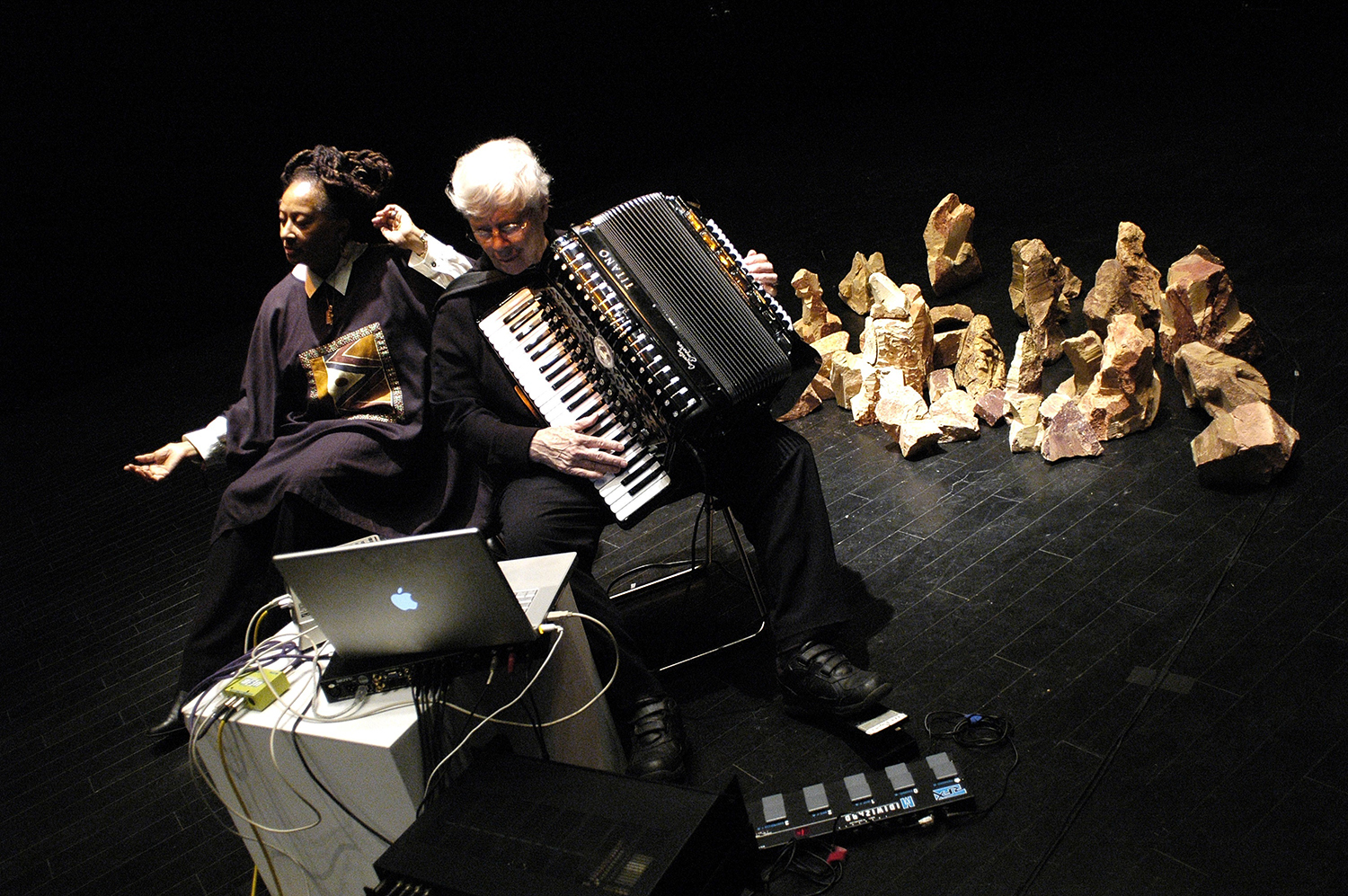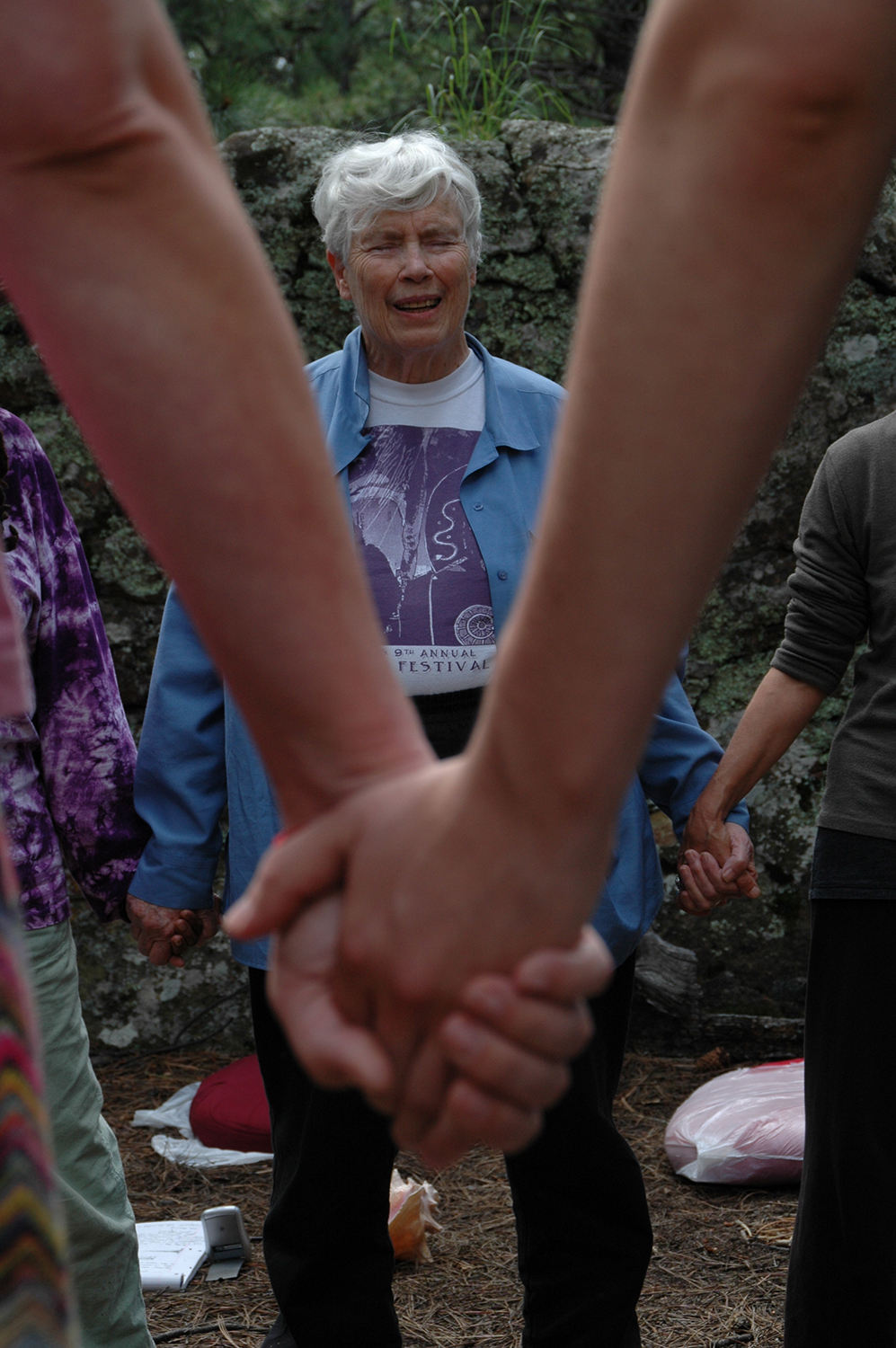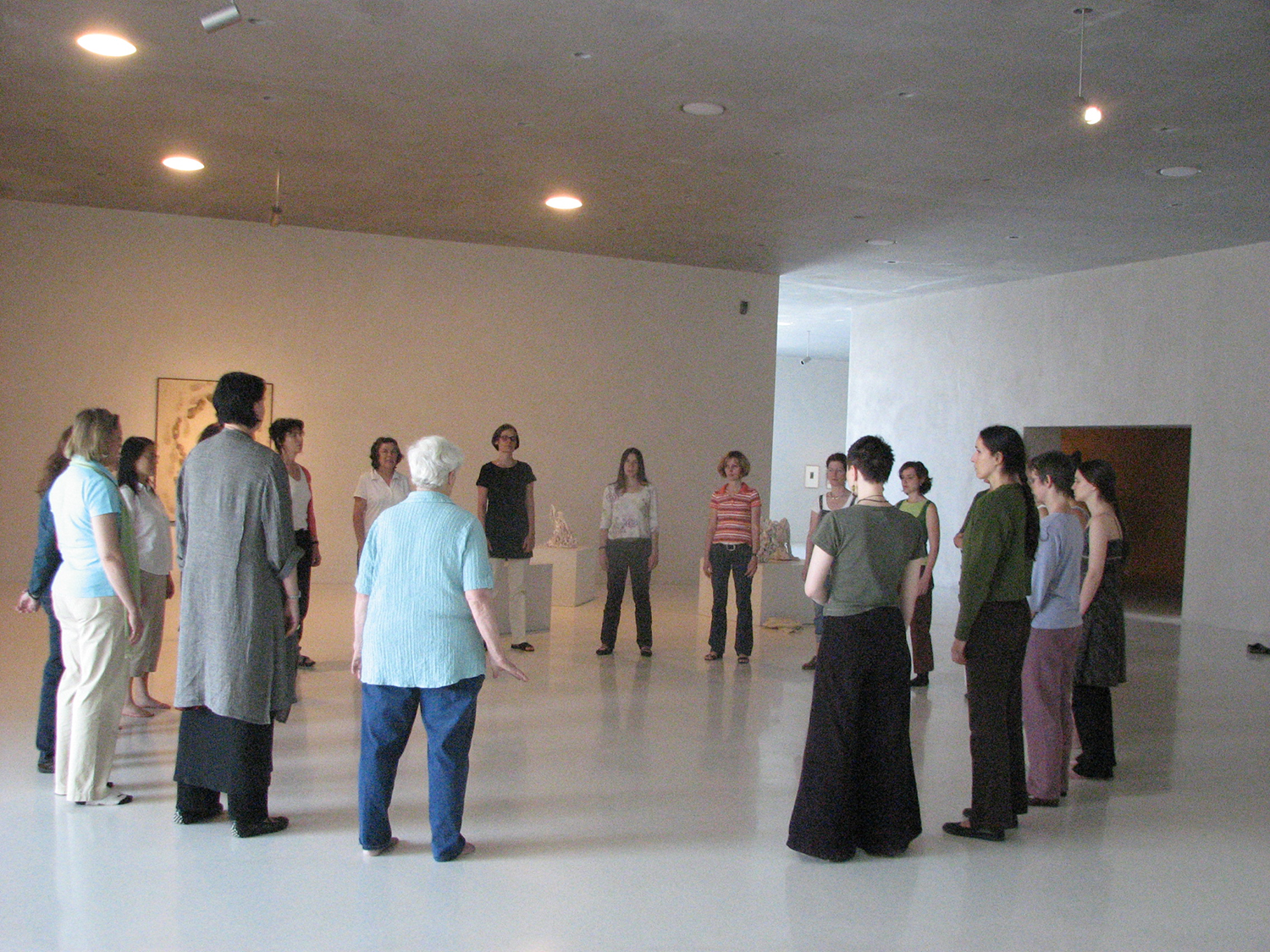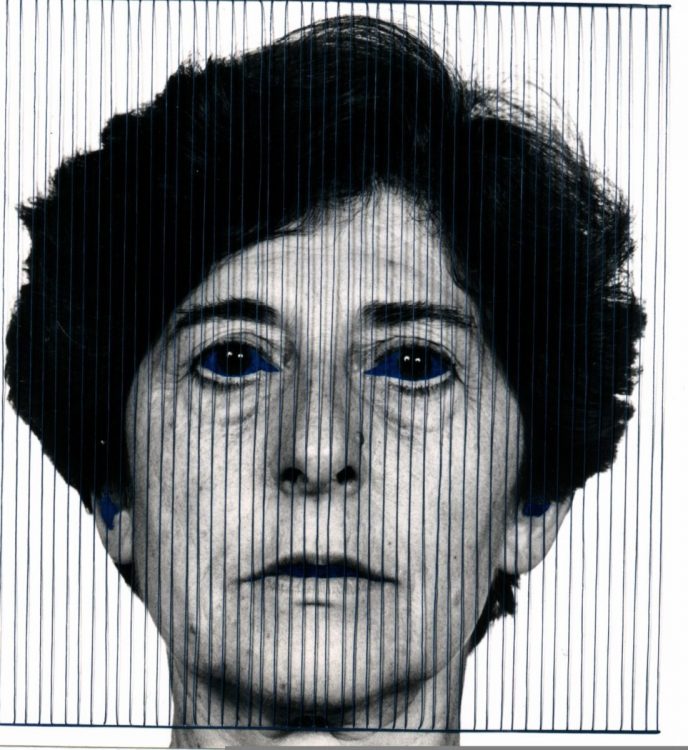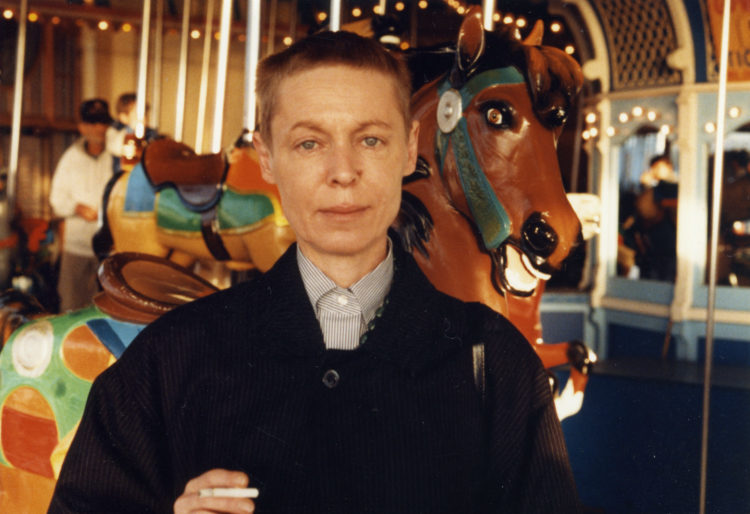Pauline Oliveros
American artist, electronic music composer, musician and teacher.
In 1962 Pauline Oliveros, a trailblazer for future sound artists, co-founded the San Francisco Tape Music Center, a self-managed recording studio which – shaped by her collaborations with Steve Reich, Terry Riley and Morton Subotnik – allowed her to give free rein to a series of experiments with magnetic tape, a cornerstone of contemporary electronic music. When the Tape Music Center became part of Mills College in Oakland, California in 1965, she was appointed its first director.
The appeal of the radical egalitarian ideas proclaimed by Valerie Solanas in her SCUM Manifesto (1968) coincided with the development of P. Oliveros’s own powerful commitment to feminism over the course of the 1960s. In 1970 she published a column in the New York Times titled “And Don’t Call Them ‘Lady’ Composers”, in which she addressed the dearth of women among the great musicians, as Linda Nochlin did that same year in the context of the visual arts.
To Valerie Solanas and Marilyn Monroe, in Recognition of their Desperation (1970) represents her first overtly feminist composition. A piece written for six musicians, it requires each of them to listen to the person playing alongside them and allow themselves to be influenced by the other’s performance in a spirit of radical non-hierarchy, inspired by the women’s names in the title and their desperate pleas for recognition and equality. In short, the essential remit of the score advocates paying attention to the other musicians rather than to their virtuoso performances. The dynamics between the group and the musicians’ individual inventions mirrors the development of the women’s movement at the time, and its acknowledgement of the need for collective action rather than spotlighting its more charismatic members.
P. Oliveros thereby achieved a conceptual reversal of the implicit rules of musical performance, stemming from the feminist agenda she had favoured throughout her career by encouraging the work of other women. In 1971, in the wake of her involvement in the anti-Vietnam War protests at the University of California in San Diego, where she had been teaching since 1967, she founded the ♀ Ensemble. From a launch pad of group improvisations, she developed Sonic Meditations, authentic conceptual exercises that tackled the effects of domination and authority by virtue of a democratic brief to open up musical composition to the greatest number. Her short piece “Native”, for instance, invites the participants to “take a walk at night. Walk so silently that the bottoms of your feet become ears.” The principle of listening as a ritual and therapy, akin to meditation, finds its most holistic expression in the invention of what she termed Deep Listening®, in other words the need to listen “in as many ways as possible to everything that can possibly be heard all of the time. She founded the Pauline Oliveros Foundation in 1985, which later became the Deep Listening Institute, Ltd in Kingston, NY. In 2015 the not-for-profit organization became The Center for Deep Listening in Troy, NY which maintains a Distance Learning Certification Process, as well as workshops and retreats. The creative and intellectual work of the artist is disseminated by Pauline Oliveros Publications and Ministry of Maat under the auspices of The Pauline Oliveros Trust.
On the subject of the artist’s music, Tom Service wrote: “Oliveros’s listening encompasses the whole world, it doesn’t separate you from it, and the noise of politics, identity, and representation is part of what she hears.”



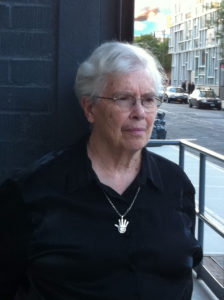
 Accordion & Voice | Pauline Oliveros, Full album (1982)
Accordion & Voice | Pauline Oliveros, Full album (1982) 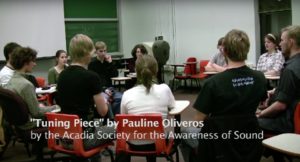 Tunning meditation | Pauline Oliveros
Tunning meditation | Pauline Oliveros  The Wanderer | Pauline Oliveros, Full album (1984)
The Wanderer | Pauline Oliveros, Full album (1984) 